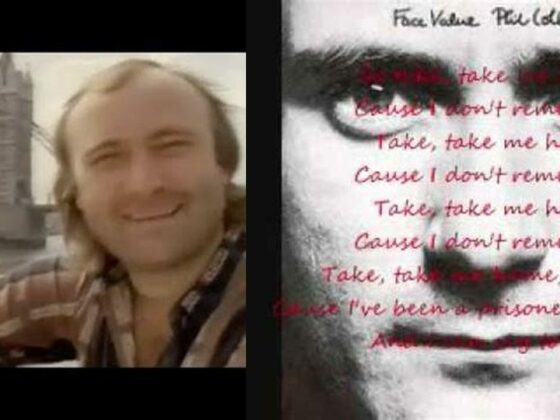Unlocking the meaning behind the “Cry To Me” lyrics is like delving into a treasure trove of emotion and longing. Whether you’re a fan of soulful tunes or simply curious about the deeper layers of this timeless classic, join us on a journey through the heart and soul of the song. From unraveling the poignant lyrics to understanding the raw emotions behind them, we’re here to answer your burning questions about the “Cry To Me” lyrics meaning. So, grab a tissue and get ready to dive into the heart-wrenching world of this soulful anthem.
Cry to Me: A Journey Through Emotion and Soulful Longing
Cry to Me: An Anthem of Emotional Vulnerability
In the realm of timeless classics, few songs have captured the essence of emotional vulnerability and longing as profoundly as Solomon Burke’s 1961 hit, “Cry to Me”. This soulful ballad has stood the test of time, resonating with listeners across generations through its heartfelt lyrics and passionate vocals.
Journey with us as we delve into the depths of “Cry to Me”, exploring its poignant message, the artistry behind its creation, and the enduring impact it has had on the music industry and beyond.
The Genesis of a Soulful Classic
The year was 1961, and a young songwriter named Bert Berns was pouring his heart into a composition that would later become an anthem of emotional solace. Inspired by the raw emotions of heartbreak, Berns crafted lyrics that spoke to the universal longing for comfort and understanding.
With a melody that tugged at the heartstrings, “Cry to Me” was destined for greatness. It found its perfect voice in Solomon Burke, a rising star in the soul music scene known for his powerful and soulful vocals. Burke’s interpretation elevated the song to new heights, imbuing it with a depth of emotion that resonated with audiences worldwide.
Unraveling the Tapestry of Emotion
“Cry to Me” is a poignant ballad that delves deep into the human experience of longing and vulnerability. The lyrics, like a confessional, lay bare the narrator’s yearning for emotional connection and solace.
Each verse and chorus builds upon this theme, painting a vivid picture of a soul in distress, seeking comfort in the arms of a loved one. The lyrics, simple yet evocative, capture the raw emotions of longing, desperation, and the profound desire for understanding.
“Cry to me, baby, when you need me,
When you need me, baby, cry to me.”
These lines, repeated throughout the song, serve as a beacon of hope, an invitation to let go of inhibitions and embrace the healing power of human connection.
The Enduring Legacy of “Cry to Me”
“Cry to Me” transcended its time, becoming an instant classic upon its release in 1961. Its soulful melodies and heartfelt lyrics resonated with listeners across demographics, solidifying Solomon Burke’s status as a revered soul singer.
The song’s influence extends far beyond its initial release. It has been covered by numerous artists, including The Rolling Stones, further cementing its place in music history. Its timeless appeal lies in its ability to capture the universal human experience of emotional vulnerability, making it relatable to generations of listeners.
“Cry to Me” has become more than just a song; it has evolved into an anthem of emotional solace. Its message of seeking comfort and understanding during times of distress has touched the hearts of millions, providing a sense of companionship and solace.
Conclusion: A Timeless Classic that Continues to Inspire
“Cry to Me” stands as a testament to the transformative power of music. Its poignant lyrics, passionate vocals, and enduring message have made it a timeless classic, captivating audiences for over six decades.
The song’s ability to evoke strong emotions, its relatability across generations, and its influence on the music industry solidify its place as a true masterpiece. As long as there are hearts yearning for connection and souls seeking solace, “Cry to Me” will continue to resonate, reminding us of the power of human vulnerability and the transformative nature of music.
Frequently Asked Questions
- Who wrote “Cry to Me”?
Bert Berns - When was “Cry to Me” released?
1961 - What genre does “Cry to Me” belong to?
Soul, Gospel, Rhythm and Blues - Has “Cry to Me” been covered by other artists?
Yes, by artists such as The Rolling Stones. - What makes “Cry to Me” a timeless classic?
Its relatable lyrics, passionate vocals, and the emotional connection it establishes with listeners across generations. - How does “Cry to Me” reflect the human experience?
It captures the vulnerability of seeking comfort in the arms of another and the universal human experience of longing for emotional connection. - Why is “Cry to Me” considered an anthem of emotional solace?
It provides a sense of solace and comfort through its heartfelt lyrics and soulful delivery. - What impact did “Cry to Me” have on the music industry?
It played a significant role in shaping the soul music genre and solidified Solomon Burke’s status as a revered soul singer. - How does Solomon Burke’s rendition enhance “Cry to Me’s” meaning?
His powerful and soulful vocals bring a heightened sense of emotion and authenticity to the lyrics. - What emotions does “Cry to Me” evoke?
Longing, yearning, vulnerability, and the desire for emotional connection. - Why is “Cry to Me” still relevant today?
Its timeless theme of emotional vulnerability remains a fundamental aspect of the human experience. - How does “Cry to Me” continue to touch the hearts of listeners today?
Through its relatable lyrics and emotional resonance, offering solace and a sense of companionship.
Questions & FAQ about Cry To Me Lyrics Meaning
What is the significance of “Cry to Me” in the realm of timeless classics?
The song “Cry to Me” is revered for capturing the essence of emotional vulnerability and longing, resonating with listeners across generations through its heartfelt lyrics and passionate vocals.
Who composed “Cry to Me” and what inspired its creation?
The song was composed by Bert Berns in 1961, who was inspired by the raw emotions of heartbreak to craft lyrics that spoke to the universal longing for comfort and understanding.
What is the enduring impact of “Cry to Me” on the music industry and beyond?
“Cry to Me” has had an enduring impact on the music industry and beyond, with its poignant message and artistry continuing to resonate with audiences, solidifying its status as a soulful classic.
How would you describe the message conveyed by “Cry to Me”?
The song conveys a message of emotional solace, speaking to the universal longing for comfort and understanding in times of heartbreak and vulnerability.
What makes “Cry to Me” a soulful ballad that has stood the test of time?
The heartfelt lyrics and passionate vocals of “Cry to Me” contribute to its status as a soulful ballad that has stood the test of time, capturing the essence of emotional vulnerability and longing.
What emotions and themes does “Cry to Me” explore?
“Cry to Me” delves into themes of emotional vulnerability, longing, and the universal need for solace and understanding in times of heartbreak.


